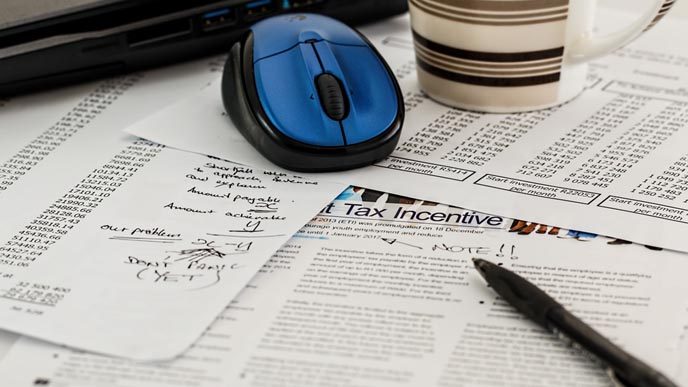Let me preface this by saying that I am neither an accountant nor a lawyer and laws can vary drastically from jurisdiction to jurisdiction. It is in your best interest to consult with a tax professional if you have any questions or are seeking any clarification. With that said, if you make any amount of money on the Internet in any sort of self-employed fashion, there’s a good chance that you can “write off” at least some of the expenses you incur in the process of generating your online income.
It is a bit of an oversimplification, but there are basically three ways that you can (legally) reduce your bill to the tax man: you can earn less money, you can gain more deductions, or you can restructure how you pay taxes in the first place. I don’t think you want to earn less, so let’s see where you can deduct more.
1. Conference and Membership Fees
Think about all the money that you spend for the purpose of running your online business, whether it’s a blog, through affiliate marketing, via arbitrage or whatever else. There are a number of conferences and trade shows throughout the year that are worth attending, including masterminds and keynote speaker series. John headlines a few of these every year.
If you pay to attend these kinds of conferences, you can typically write off those registration and ticket fees when doing the taxes for your online business. When you consider that tickets to some of these events can be hundreds or even thousands of dollars, this is no small sum.

Similarly, you can deduct the various membership fees that you might be paying, both online and offline. Do you have a subscription to a stock image or music site? Are you a paying member of an Internet marketing forum? Do you pay a fee to be a part of a local business meetup group or organization?
2. Domains and Web Hosting
Regardless of the kind of business that you run on the Internet, there’s a very good chance that you have a website. There’s a very good chance that you probably have several websites. For some, these expenses may be minimal. You might only pay about $10 for a domain and less than $100 for a year’s worth of shared web hosting. But these costs add up.
And when you start paying for dozens of domains and you upgrade your web hosting plan, as well as what you might pay for expanded cloud storage solutions and other online services, it only makes sense that you consider these as legitimate business expenses.
3. Home Office Utilities
Speaking of legitimate business expenses, I’m really surprised by the number of entrepreneurs who don’t take advantage of tracking the cost of using their home office. Yes, some of you may utilize a coworking space or have “real” office space outside the home, but most of us work primarily out of our homes.
It’s easiest to do this calculation (and justify it) when your home office is a dedicated space in your home, like a spare bedroom, that is used solely for the purposes of conducting business. There are different ways you can go about doing this, but one of the most common is based on square footage.
If your home is about 2,000 square feet and the room you’re using is about 200 square feet, then you can legitimately write off about 10% of your utilities. This includes your power bill, your heating bill, a portion of your property tax bill, and so on. The same idea can extend to your Internet and cell phone service.
4. Business Lunches
You know how John holds Dot Com Lunch on a regular basis in the OC? Back when he was in Vancouver, that was Dot Com Pho and we’d do it every week. We still get together now and then in his absence. Some people might see these as social gatherings, but they are legitimate business meetings. It’s through Dot Com Pho that I’ve been able to grow my freelance writing business these last 10+ years.

Given this, it’s perfectly legitimate for me to write off the expense of attending Dot Com Pho when it comes time to do taxes. It may only be about $15, but that adds up over the course of a year and it’s not really any extra work to make sure I have a receipt. Here in Canada, the general rule is that you can only write off 50% of food expenses, but that will vary based on where you are.
I get together with current and prospective clients on a semi-regular basis too, so just as sales guys with a bigger company expense their business lunches, so can a self-employed Internet professional.
5. Transportation Costs
When you work from home and your commute consists of walking from your bedroom to the spare bedroom that operates as your home office, your day-to-day transportation costs are probably going to be pretty minimal. However, depending on how much you do, it may be worthwhile to track your travel expenses.
This can work similarly to how you’d calculate your home office expenses. Let’s say that you rack up 10,000 kilometers on your car over the course of a year and 1,000 of those kilometers was spent on business-related driving. This could be driving to pick up a parcel at your PO box, driving to a business meeting, or whatever else. You could then justifiably write off 10% of how much it cost you to keep that car for that year, including depreciation, gas, and maintenance.
Naturally, the cost of flights, hotels, and taxis when you’re away from home for the purposes of work can represent much more sizable business expenses. Flying to a conference? Nearly that whole trip can probably be written off.
Like I said, I’m not a tax professional, but this list of five tax deductions should help you to start thinking about the money you are leaving on the table by not writing off these legitimate expenses. After all, your online business is as real a business as any other.
